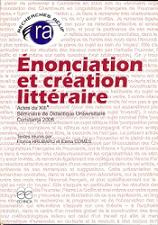L’USAGE DE LA PAROLE de Nathalie Sarraute. Scénographie et ethos
Nathalie Sarraute’s The Use of Speech. Scenography and Ethos
Author(s): Ivanciu NinaSubject(s): Literary Texts
Published by: Editura Echinox
Summary/Abstract: The analysis of this article, falling into linguistic formalism, discursive pragmatism, psychology and aesthetic ideology, tries to display the unique interweaving between the verbalisation and the psychic in and by Sarraute’s narration. The action of the first one, namely through common places, leads to both dissimulation and unveiling of the states located below the conscience, while the thrust of the latter dynamizes the language so that it succeeds in transgressing the common patterns of expression/of interaction in order to capture the vivacity of the felt in its nascent state. The scriptural ideology, which gives value to this unique relationship mode between verbalisation and emotional state, materialises in the mechanism of the narrative registers enunciative levels and their correspondent interaction scenes, nature and role of enunciative figures, images the interactants give birth to) in accordance with two correlative principles: instability and indeterminacy. Moreover, the verbalisation of the emotional movements encourages the emergence of a particular ethos, which is nourished in this way and conflicts with the conventions governing the daily phony exchange. The study will underline the attempts of this new ethos to shell the “patterned” ethos, mainly by means of the controversy between interlocutors – actors of a psychodrama where they appear as carriers of one or another type of ethos.
Journal: Recherches ACLIF: Actes du Séminaire de Didactique Universitaire
- Issue Year: 2007
- Issue No: 04
- Page Range: 51-68
- Page Count: 18
- Language: French

